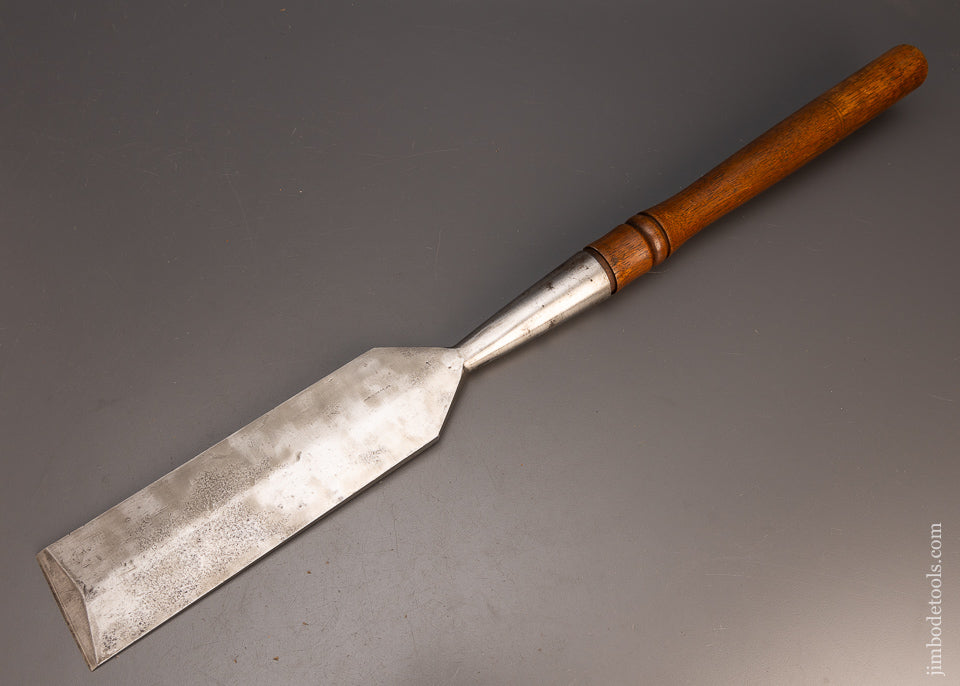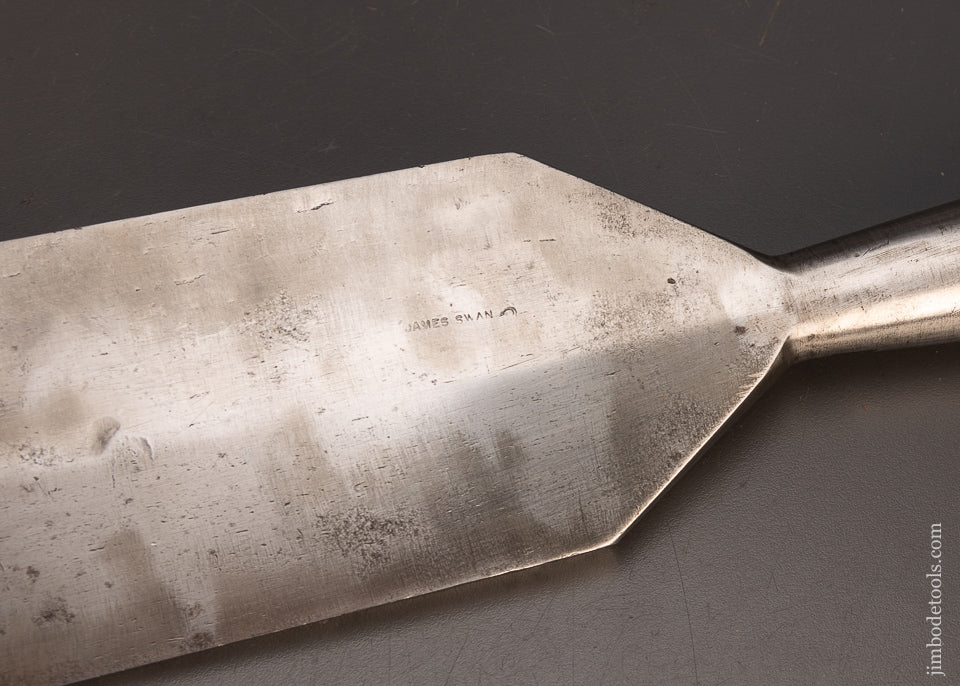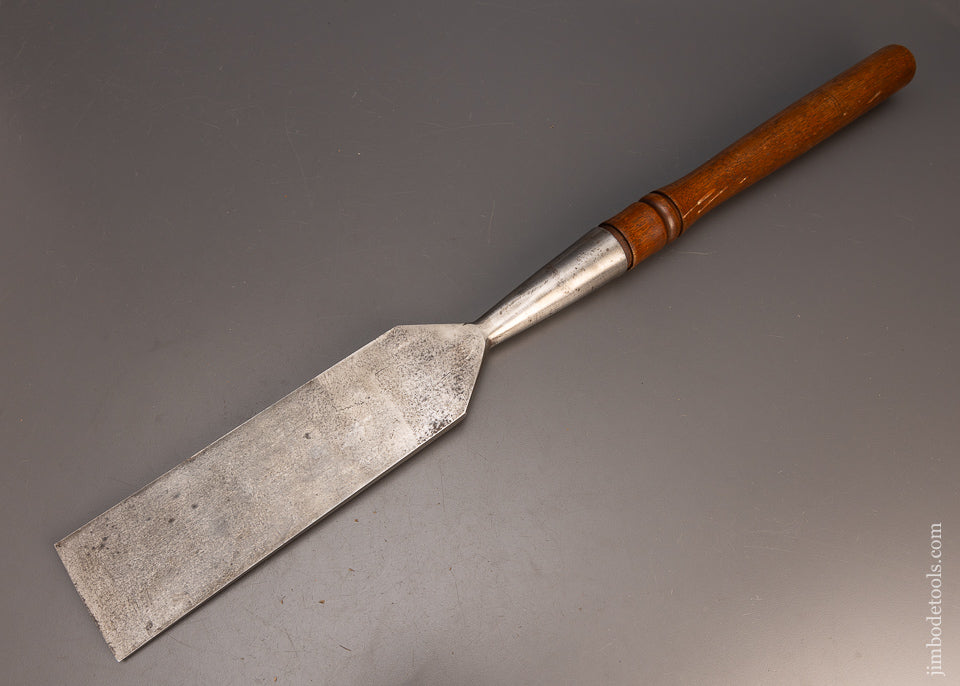27 3/4 inches long and extra fine. Original handle. The absolute best of the best for edge taking and edge holding. James Swan emigrated from Scotland in 1854 and worked at the Bassett Iron Works in Birmingham, CT, the Farrel Foundry & Machine Co in Ansonia, CT, and for Oliver Annes before buying Annes' business in 1877. He acquired Douglass Mfg. Co. and changed its name, but apparently still used its name in 1894. Upon Swan's death, the company passed to his son William, followed by his brother John, followed by James, son of John.
Laminated for toughness. Laminated chisels are sought after because the combination of softer steel and harder steel not only makes for a tougher chisel, but it also makes them much easier to sharpen. The softer material is easily ground away like butter. The toughness also allows the use of harder steel at the edge without fear of the chisel breaking.
- Gallery
- Description



27 3/4 inches long and extra fine. Original handle. The absolute best of the best for edge taking and edge holding. James Swan emigrated from Scotland in 1854 and worked at the Bassett Iron Works in Birmingham, CT, the Farrel Foundry & Machine Co in Ansonia, CT, and for Oliver Annes before buying Annes' business in 1877. He acquired Douglass Mfg. Co. and changed its name, but apparently still used its name in 1894. Upon Swan's death, the company passed to his son William, followed by his brother John, followed by James, son of John.
Laminated for toughness. Laminated chisels are sought after because the combination of softer steel and harder steel not only makes for a tougher chisel, but it also makes them much easier to sharpen. The softer material is easily ground away like butter. The toughness also allows the use of harder steel at the edge without fear of the chisel breaking.


